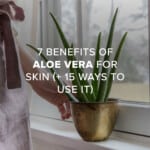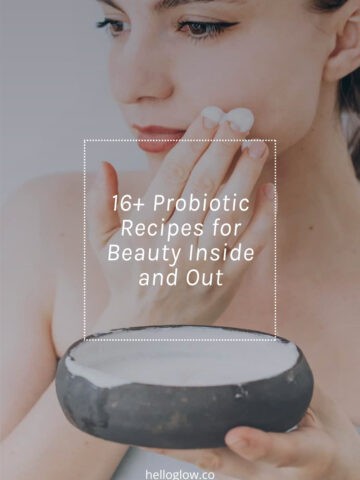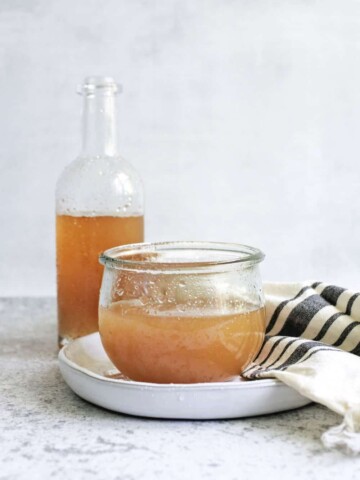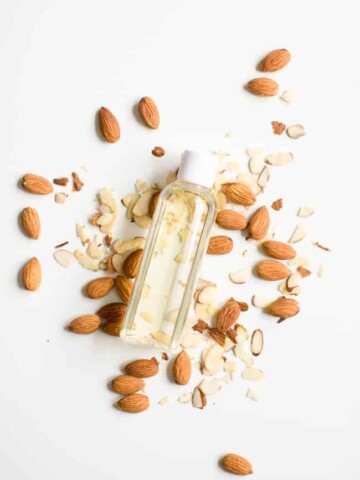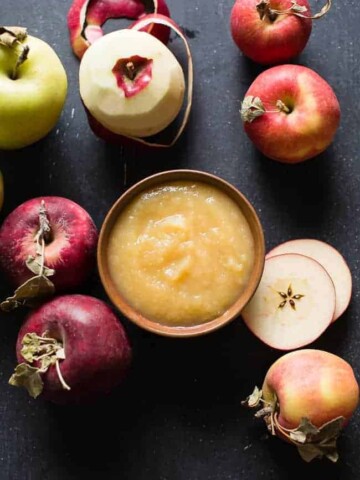Aloe vera gel is rich in vitamins, minerals, enzymes, and amino acids, making it a must-have ingredient for homemade beauty recipes. Get the many benefits of aloe vera for skin with easy recipes for face masks, hair masks, soothing sunburn treatments, body lotions, shave gels, and more!
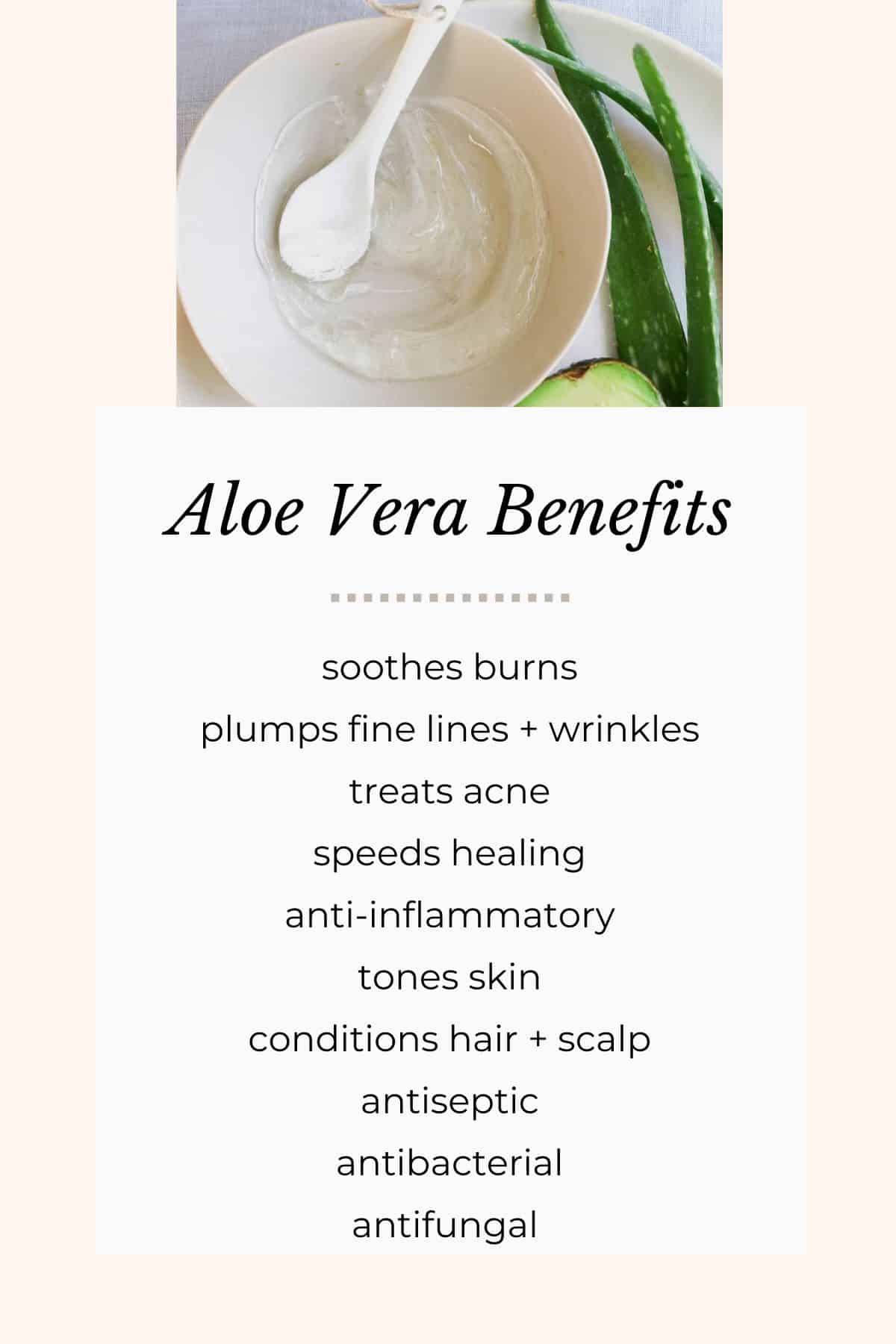
Most of us have heard that aloe vera is the go-to treatment for sunburns, right? For the longest time, I believed that sunburns were the only thing that aloe vera was good for. How wrong I was!
Besides treating wounds and burns, aloe is a fabulous moisturizer, acne fighter, and anti-aging tool. Whether you have dry, oily, or combination skin, aloe is an amazing choice to incorporate in your creams, masks, and serums.
The Egyptians actually coined the phrase the plant of immortality [source], so it's clearly an ingredient we should consider in our beauty products. Your trusty aloe vera plant has quite a few uses that can really up your skincare game!
Jump to:
- 1. Aloe Soothes Burns
- Use It In: Homemade Aloe Gel
- Use It In: Sunburn Spray
- 2. Aloe Plumps Fine Lines + Wrinkles
- Use It In: Hydrating Face Wash
- Use It In: Face Serum
- Use It In: Lash Conditioning Serum
- 3. Aloe Treats Acne
- Use It In: Acne Treatments
- Use It In: Makeup Remover
- 4. Aloe Speeds Healing
- Use It In: Scar Body Lotion
- Use It In: Face Wipes
- 5. Aloe Reduces Skin Inflammation
- Use It In: Shaving Cream
- Use It In: Eye + Face Masks
- 6. Aloe Tones Skin
- Use It In: Facial Toner
- Use It In: Face Pack
- 7. Aloe Conditions Hair + Scalp
- Use It In: De-Frizz Hair Spray
- Use It In: Scalp Masks
- Top tip
- FAQ
1. Aloe Soothes Burns
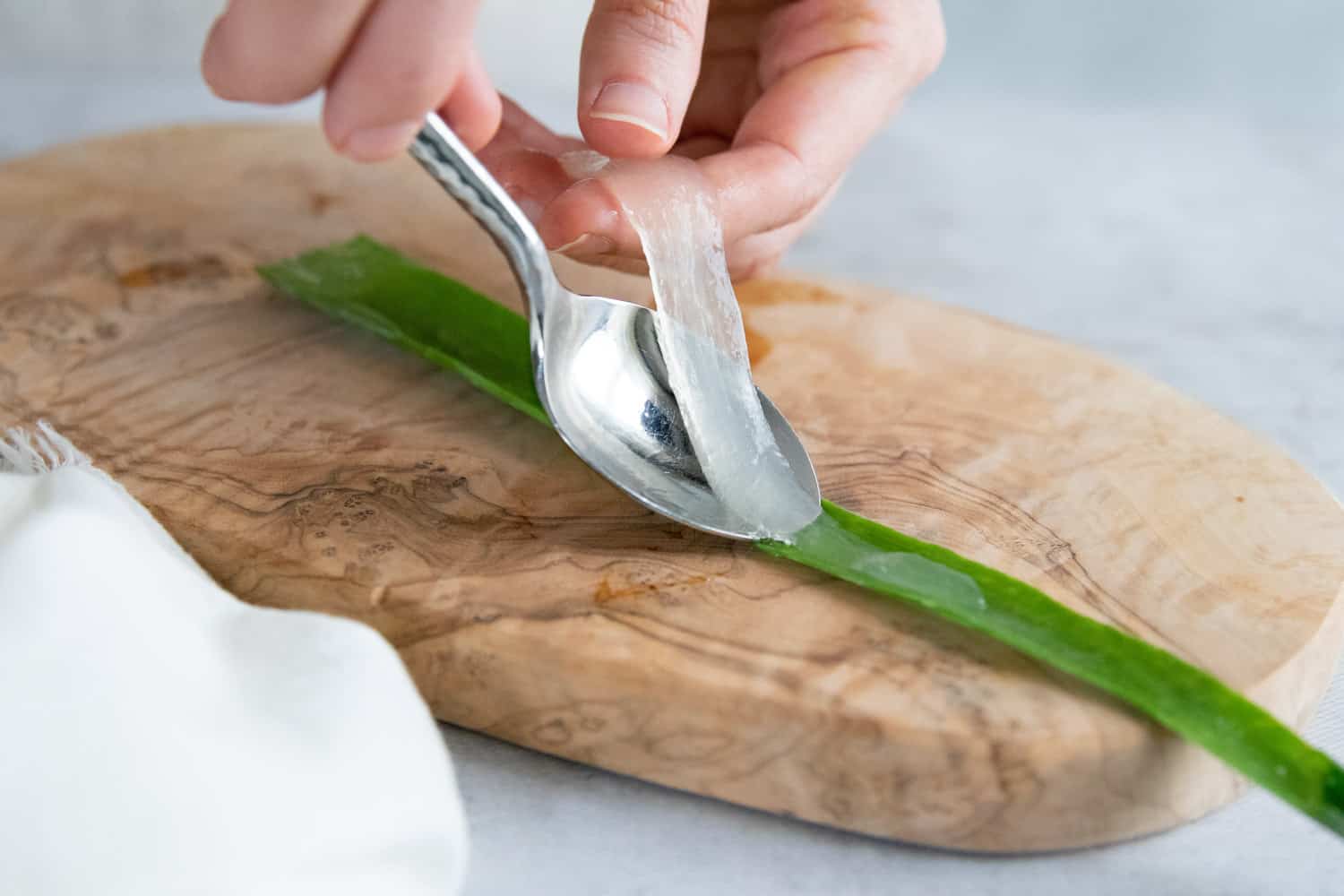
While most of us have probably heard that aloe vera is great for burns, it's worth mentioning that there is scientific evidence to support this claim. A clinical study conducted on the burn-healing effects of aloe vera found significant evidence suggesting it was beneficial in healing first- and second-degree burns [source].
Use It In: Homemade Aloe Gel
One of my favorite ways to use it is to keep a live plant in my house and simply cut off a portion when somebody gets burned. That way, I have the freshest aloe vera possible.
Use It In: Sunburn Spray
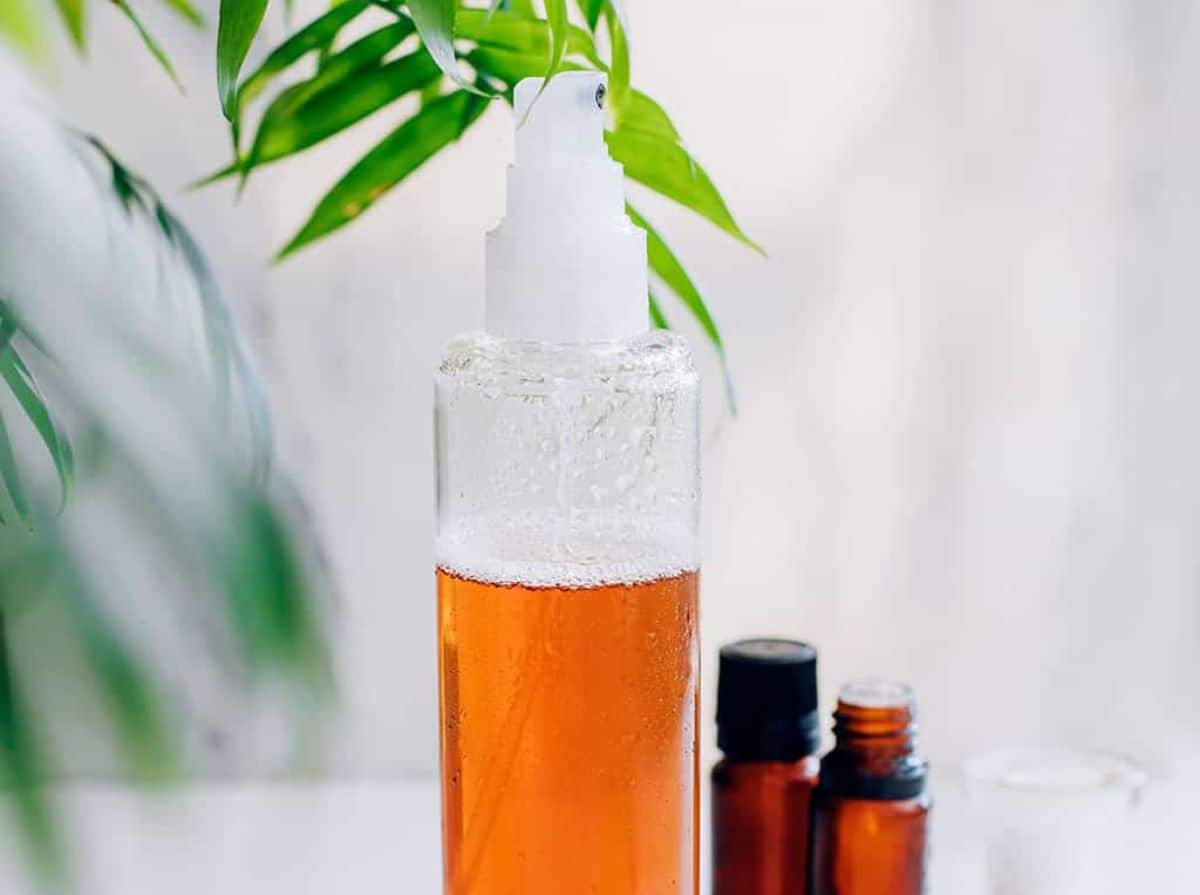
This cooling after-sun spray includes sunburn-soothing essential oils, green tea, and anti-inflammatory aloe vera to provide cooling relief for tender skin.
2. Aloe Plumps Fine Lines + Wrinkles
Herbalists have long believed aloe vera to be naturally moisturizing and able to reduce visible signs of aging. Scientific research supports this theory for topical aloe vera as well as when it's taken internally as a supplement [source].
In fact, one study found that participants who wore aloe vera gel gloves over several days found that they had “improved skin integrity [and] decreased appearance of fine wrinkling,” as well as reduced redness due to occupational dry skin [source].
Use It In: Hydrating Face Wash
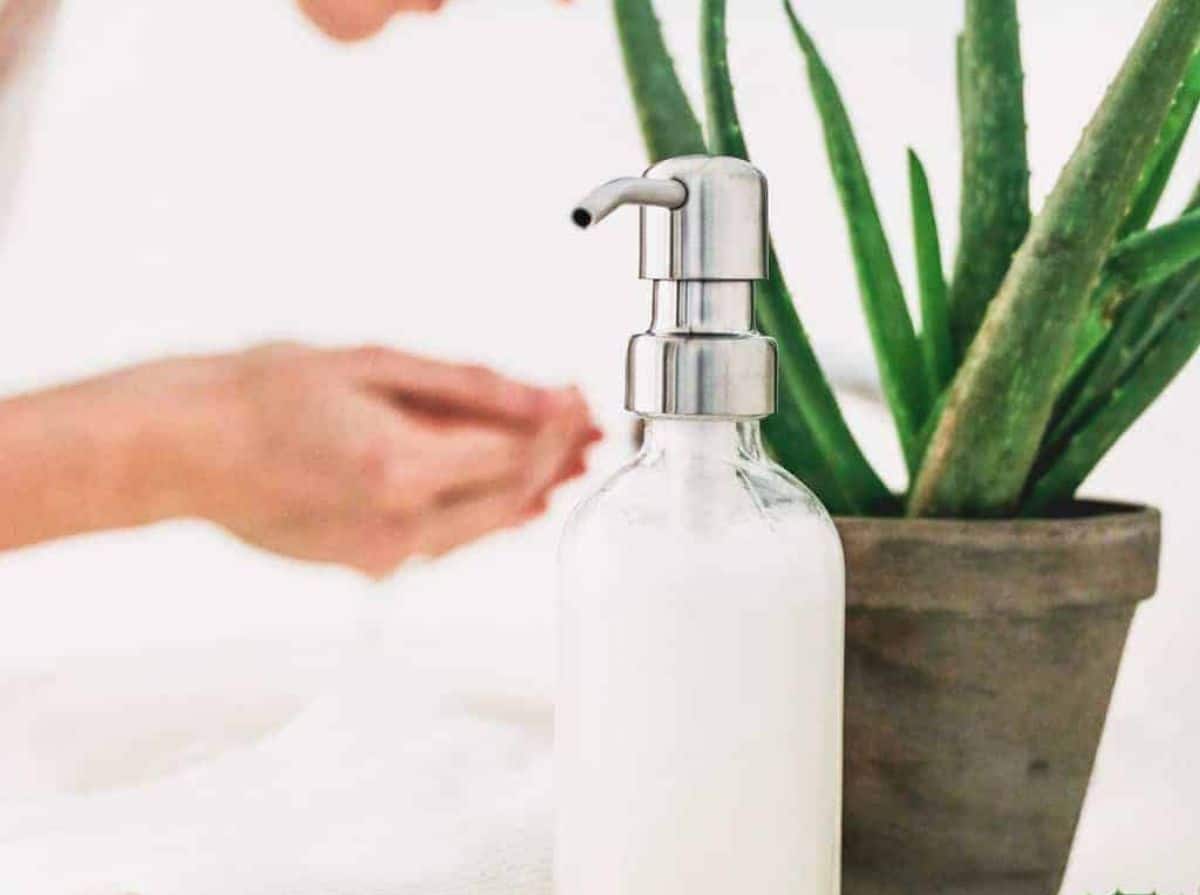
Whether your skin is problematic or you just want to keep it looking healthy, aloe vera can help by exfoliating, soothing inflammation, increasing the skin's moisture content, and reducing the appearance of wrinkles and acne. This aloe face wash recipe is especially decadent with the addition of chamomile and rose essential oils and rose water.
Use It In: Face Serum
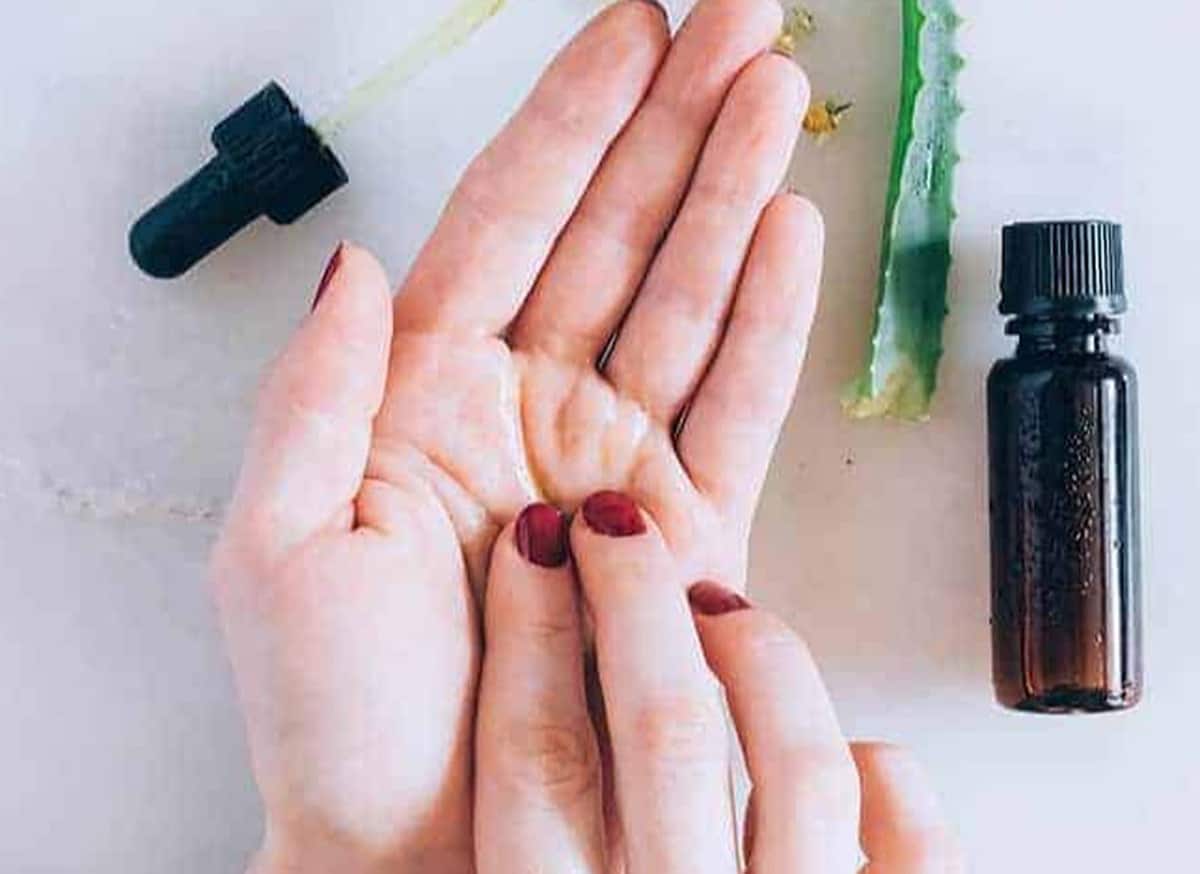
Face oils work well when applied at nighttime, but what about during the day? That's where a lightweight serum comes in, and aloe makes an outstanding serum base. Serums are some of the easiest products to make, and you can use ingredients that are suited to your skin type—like aloe vera!
Underneath your makeup, it works to soothe skin, remove blemishes, and plump up the skin to erase wrinkles. The awesome part of this serum recipe is that you can use just about any carrier oil with it, as well as any skin-loving essential oil.
Use It In: Lash Conditioning Serum
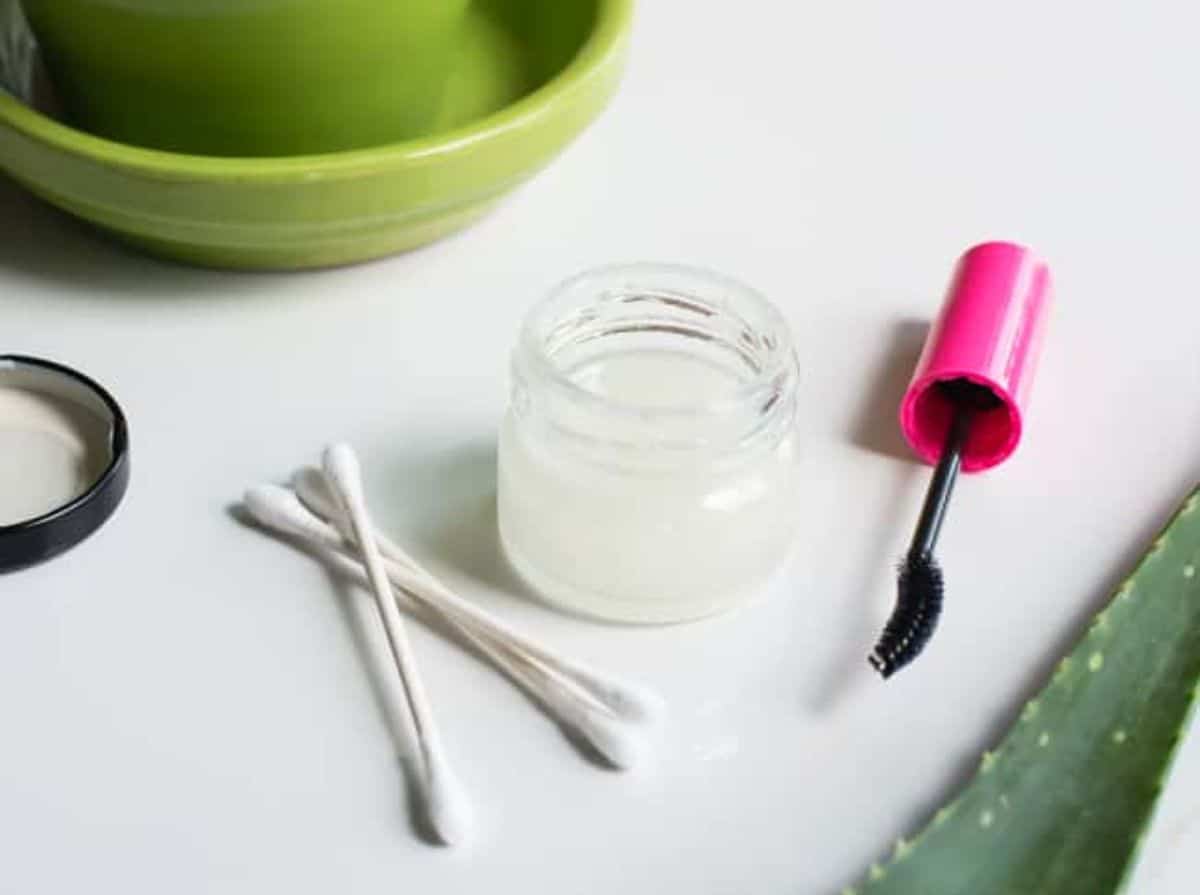
Not only is aloe great for skin, but it's also beneficial for your lashes. Commercial serums are good, but they are often pricey.
Eyelash conditioner gives the impression of fuller lashes, which is perfect for the summer when you want to wear a little less makeup. All this recipe requires is 2 ingredients, aloe vera, and castor oil, and you'll be on your way to fuller, longer lashes.
3. Aloe Treats Acne
Due to its anti-inflammatory and antibacterial properties, it's easy to imagine that aloe vera may be beneficial when dealing with acne. Luckily, research happens to agree.
In fact, one study found that aloe vera combined with tretinoin cream was significantly more effective than just using tretinoin alone [source]. Often, pharmaceutical acne treatments can be very irritating to the skin, so this is good news for those of us with sensitive skin!
Use It In: Acne Treatments
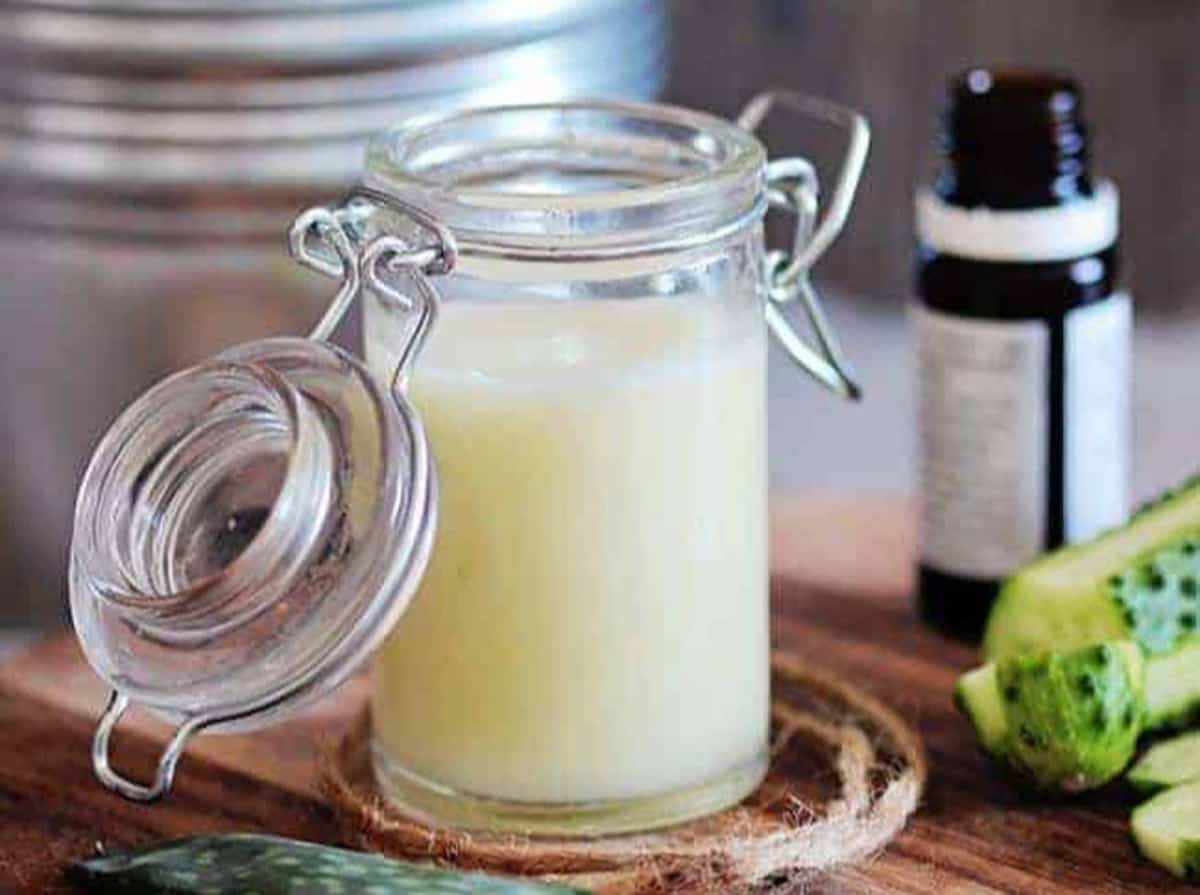
Aloe is not only calming to irritated skin, but it's a powerful acne fighter. Its anti-inflammatory and antibacterial properties can help soothe acne-prone skin and reduce redness and irritation. It may also aid in the healing process of acne scars. And combined with tea tree essential oil, it makes a mighty acne mask.
It also includes cucumber to soothe your skin while providing it with plenty of vitamin E and potassium, which can help reduce blemishes. And you won't have to worry about your skin getting dry or irritated as it does with commercial acne treatments.
Use It In: Makeup Remover
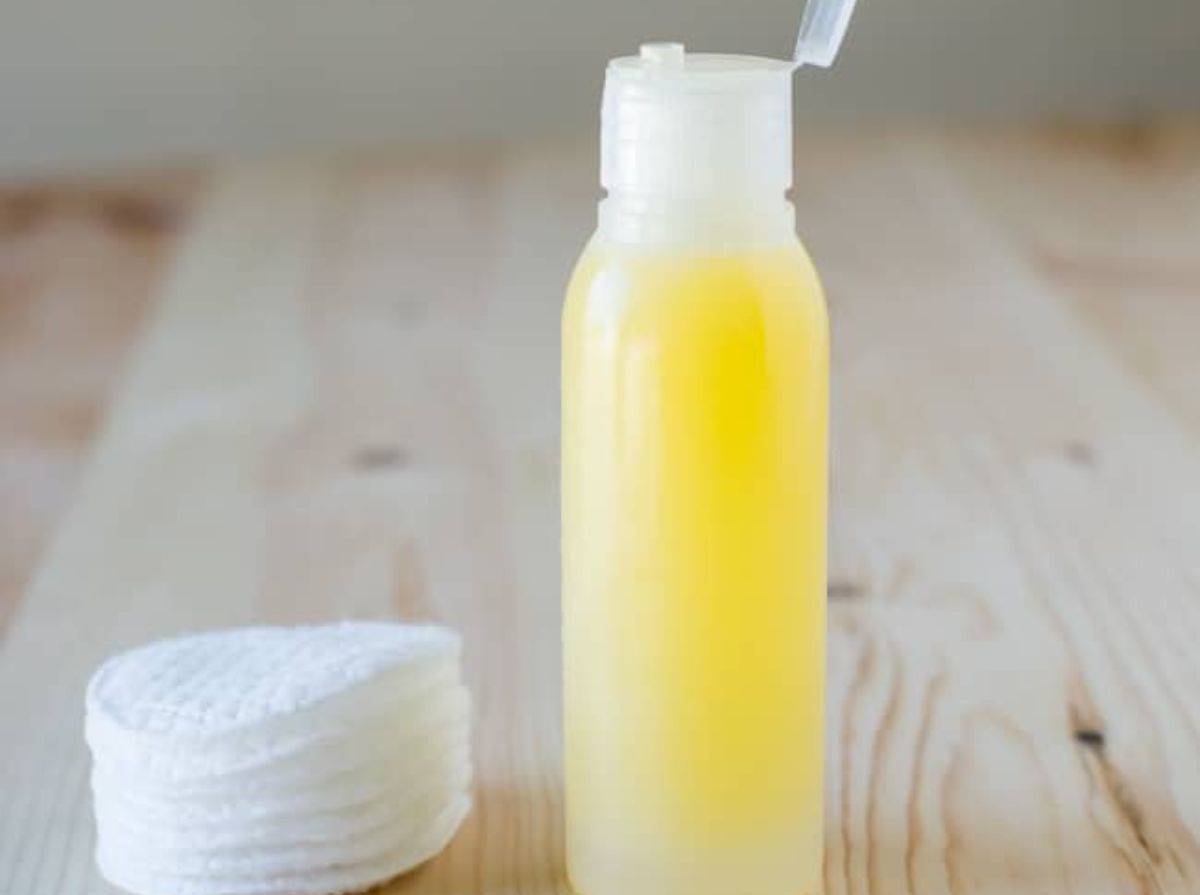
Some makeup removers are too gentle, leaving you rubbing your eyes too much (which can lead to more wrinkles), while others are too harsh. But it's important for your remover to be simple, right?
After all, you're essentially getting rid of chemicals from your face after a long day. An aloe-based makeup remover keeps it simple and only contains aloe vera, witch hazel, jojoba oil, and lemon essential oil.
4. Aloe Speeds Healing
Did you know that aloe vera is also beneficial in wound healing? Numerous studies have shown that aloe vera expedites the healing process [source], likely due to its ability to increase collagen activity [source]. This is why it's good to make sure you've got either a live aloe plant on hand or a bottle of quality aloe vera gel.
Aloe vera contains a number of beneficial components that contain antiseptic, antiviral, antibacterial, and antifungal properties [source]. This makes it an excellent choice for your natural first aid kit as cuts, scrapes, burns, abrasions, and bites could all benefit from a dab of aloe vera.
Use It In: Scar Body Lotion
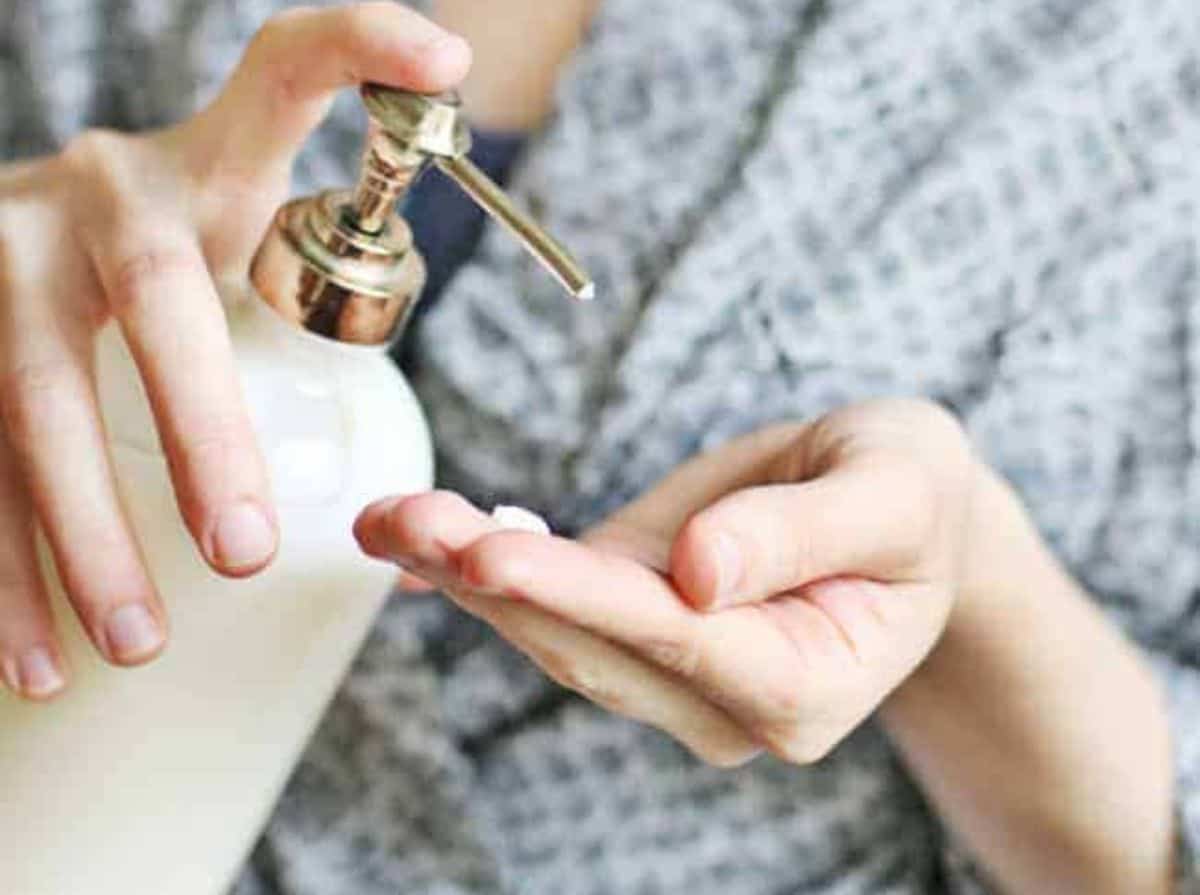
Aloe lotion sounds light and sensible for the summer, doesn't it? Lotions I make myself are my absolute favorite way to use aloe vera. I love the added moisture boost it gives the lotion. Plus, it helps give it a nice creamy feel.
Use It In: Face Wipes
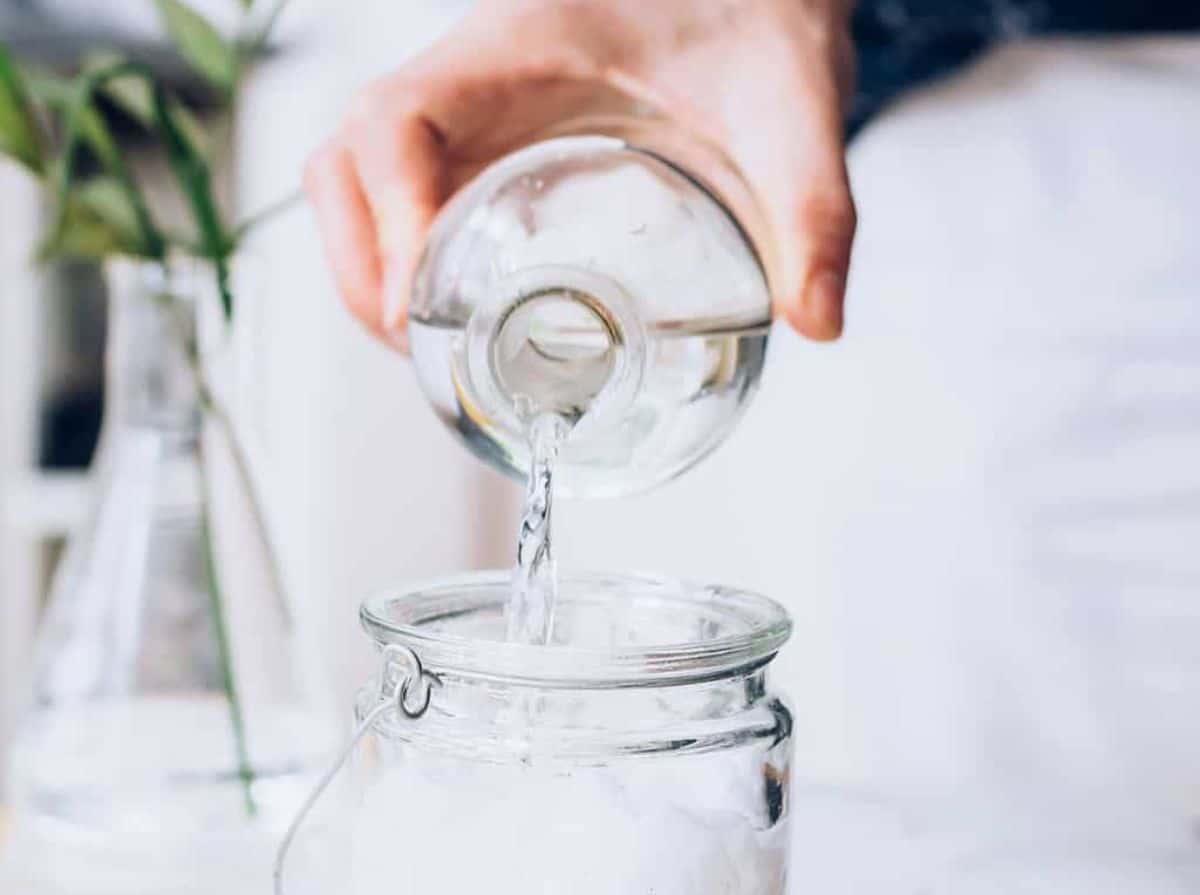
These face wipes are just the thing to use after a good workout. Exercising works up a sweat and removes toxins, but the chemicals in sweat can build up and lead to acne if you don't wash your face afterward. Having these wipes on hand is sure to keep your skin healthy and glowing. You'll even smell fresh—thanks to the dried roses!
5. Aloe Reduces Skin Inflammation
As I mentioned above, aloe vera isn't just a burn remedy—it's also beneficial for all types of skin irritation. Its anti-inflammatory and antioxidant properties make it a great choice for healing disrupted skin [source]. Eczema, dermatitis, psoriasis, hives, and acne are all skin conditions stemming from an inflammatory mechanism.
Since aloe vera gel has a mild aroma and gentle action, I find it to be more tolerable than some of the other store-bought solutions.
Use It In: Shaving Cream
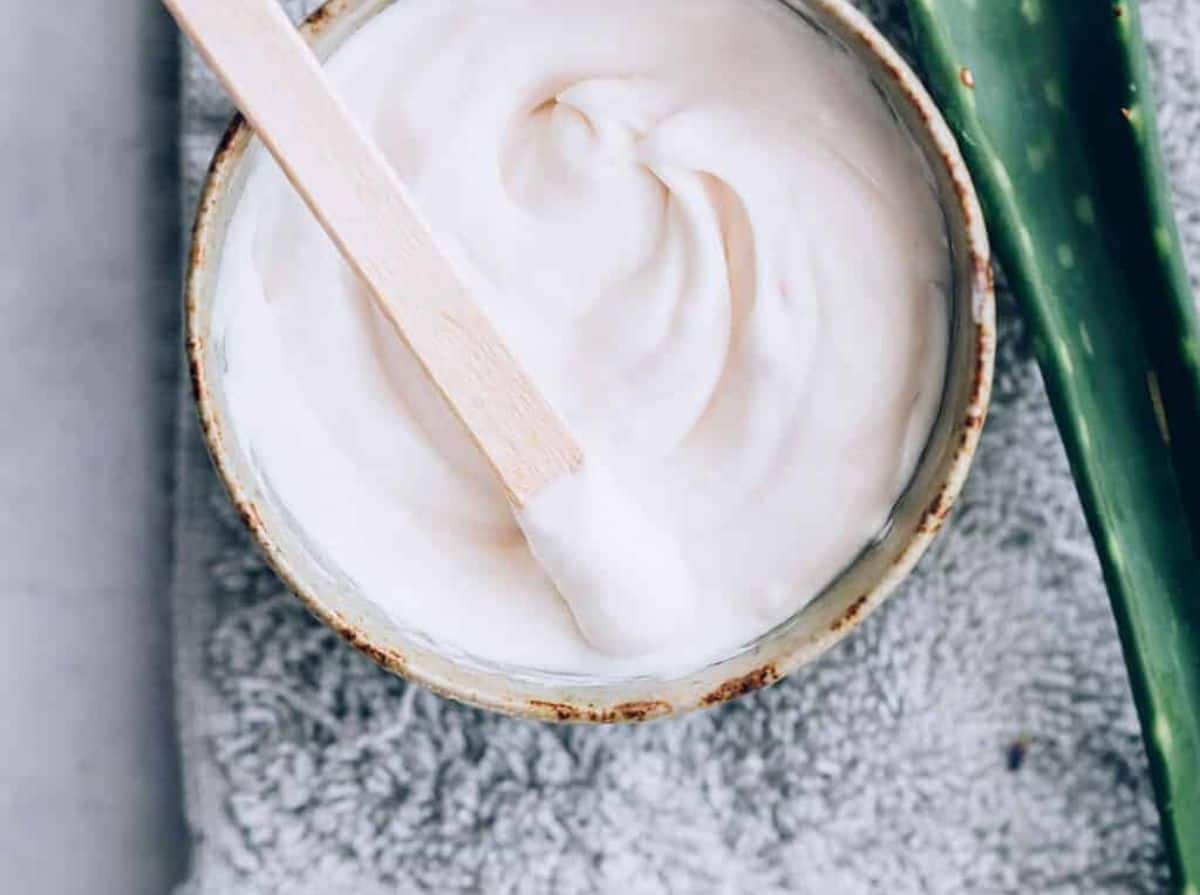
Using shaving creams with moisturizing ingredients is essential since shaving can be harsh on your skin, causing irritation and bumps. This shaving cream recipe combines aloe vera, coconut oil, and essential oils for fragrance. It's sure to soothe your legs or your man's face!
Use It In: Eye + Face Masks
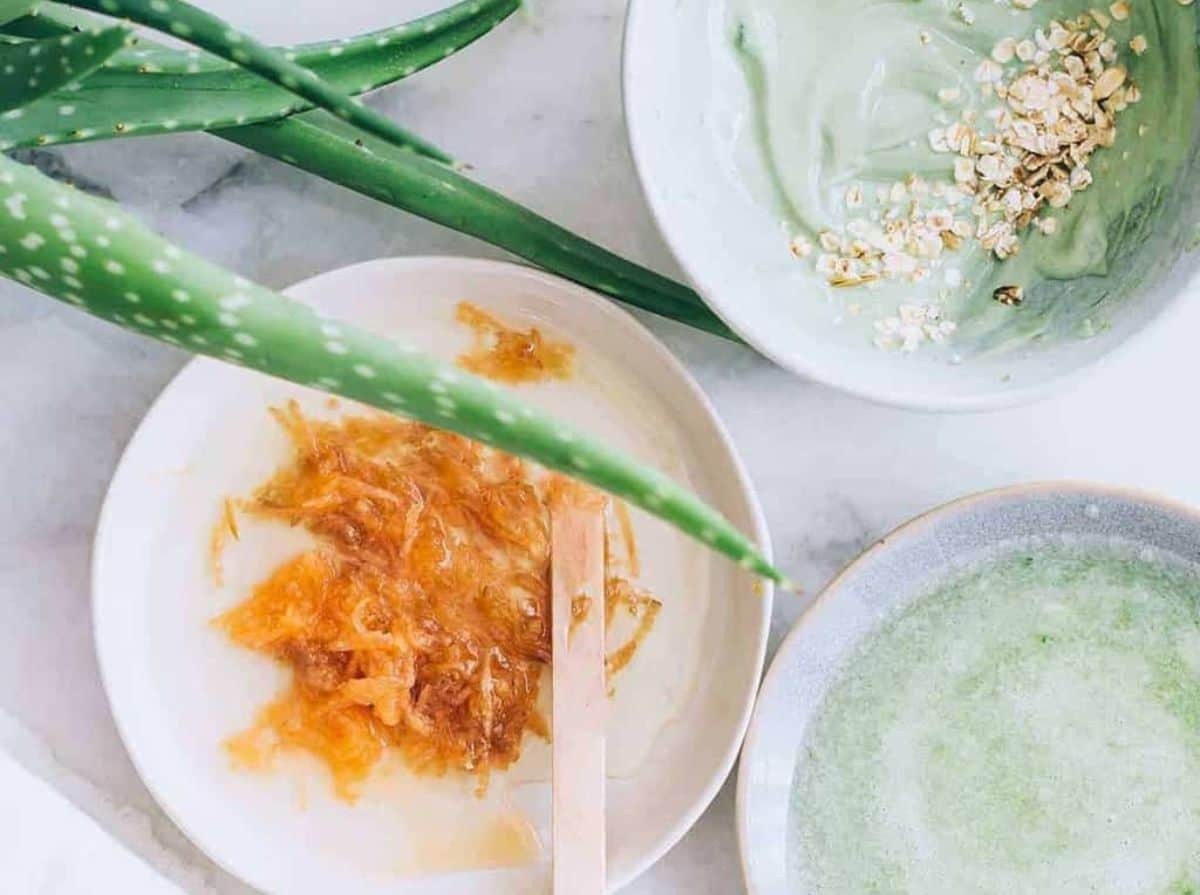
Face masks are beneficial for maintaining clear and healthy skin, and aloe masks are perfect for soothing irritated skin. It's also gentle enough to use in an eye mask recipe. Carrots provide nutritional support for our eye health and skin [source], and aloe is an excellent ingredient for use around your eyes, given its soothing properties.
6. Aloe Tones Skin
Aloe contains vitamins C and E and other antioxidants [source] and has anti-inflammatory and antimicrobial properties [source] that help tone skin and treat oiliness. The gel can be used to lighten the appearance of blemishes.
Use It In: Facial Toner
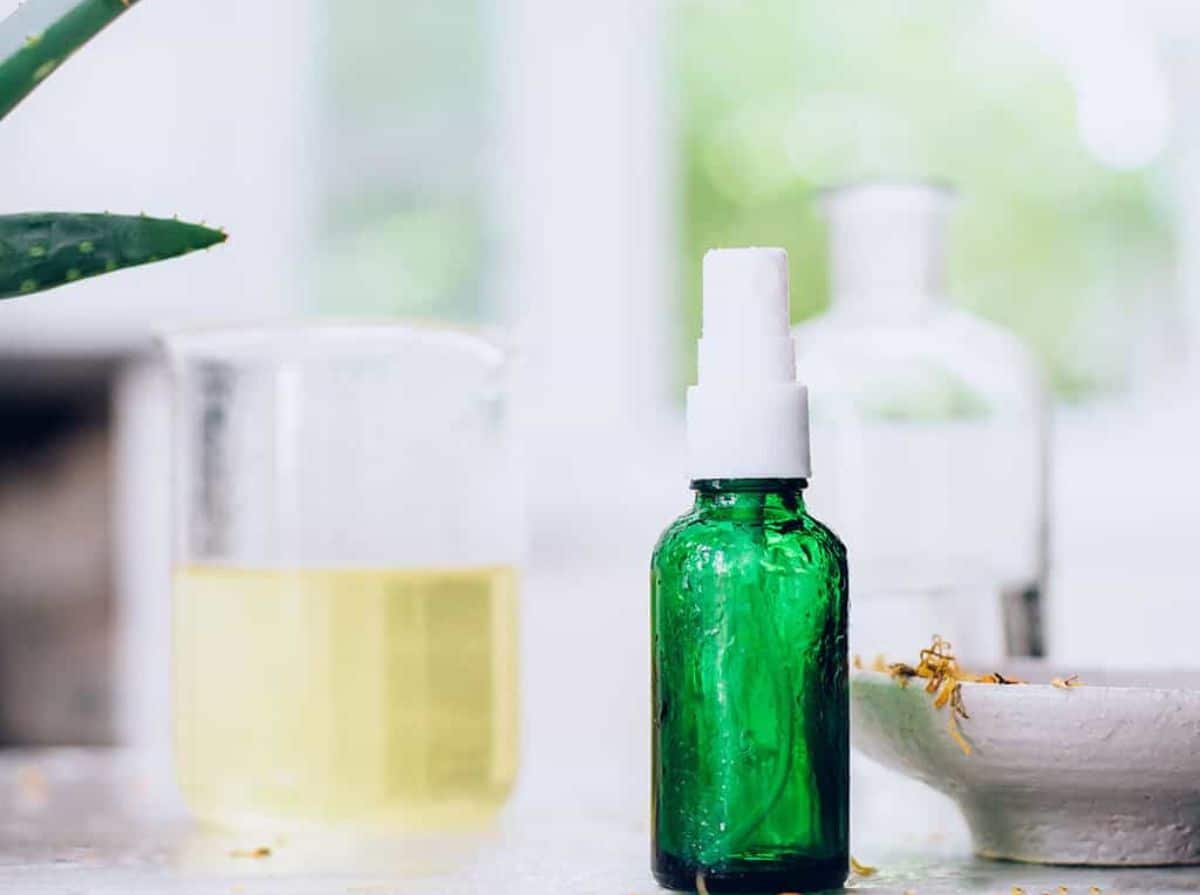
For many, toners are an important part of their skincare routine. They're great for helping to cleanse the skin, tighten pores, and support skin health.
While many store-bought toners dry out the skin, homemade facial toners are made with ingredients like witch hazel and aloe. Instead of drying out your skin, they help nourish it!
Use It In: Face Pack
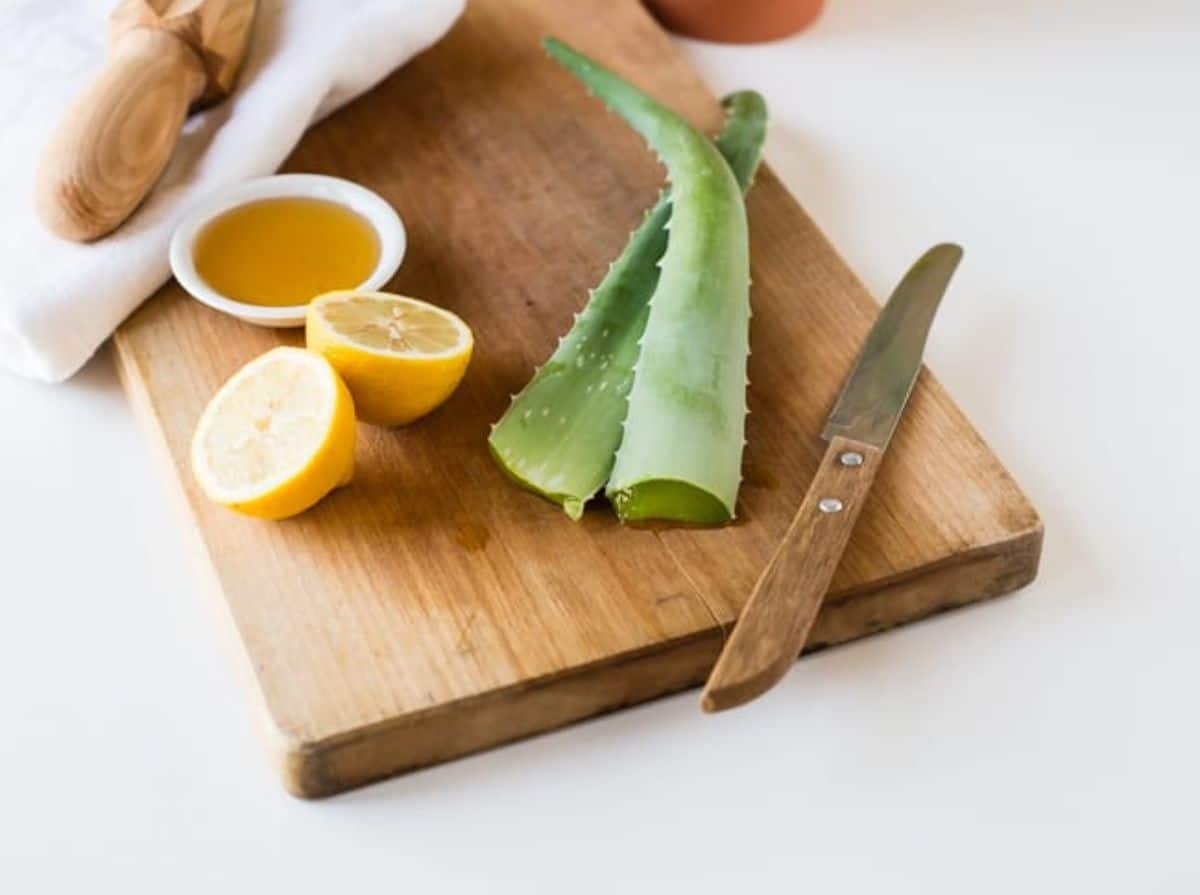
This face pack recipe combines aloe, lemon juice, and honey. Aloe vera gel and lemon juice are both full of micronutrient-rich ingredients for the skin, making for a fantastic therapeutic face pack.
Lemon has excellent exfoliant action that gently removes dead skin cells and antioxidants that help to nourish new ones [source], while aloe soothes and cools. It can also help treat acne, fade pigmentation, and improve acne scars.
7. Aloe Conditions Hair + Scalp
The natural salicylic acid in aloe vera extracts can help remove dandruff build-up from the scalp, plus aloe reduces itchiness and hydrates hair strands.
Use It In: De-Frizz Hair Spray
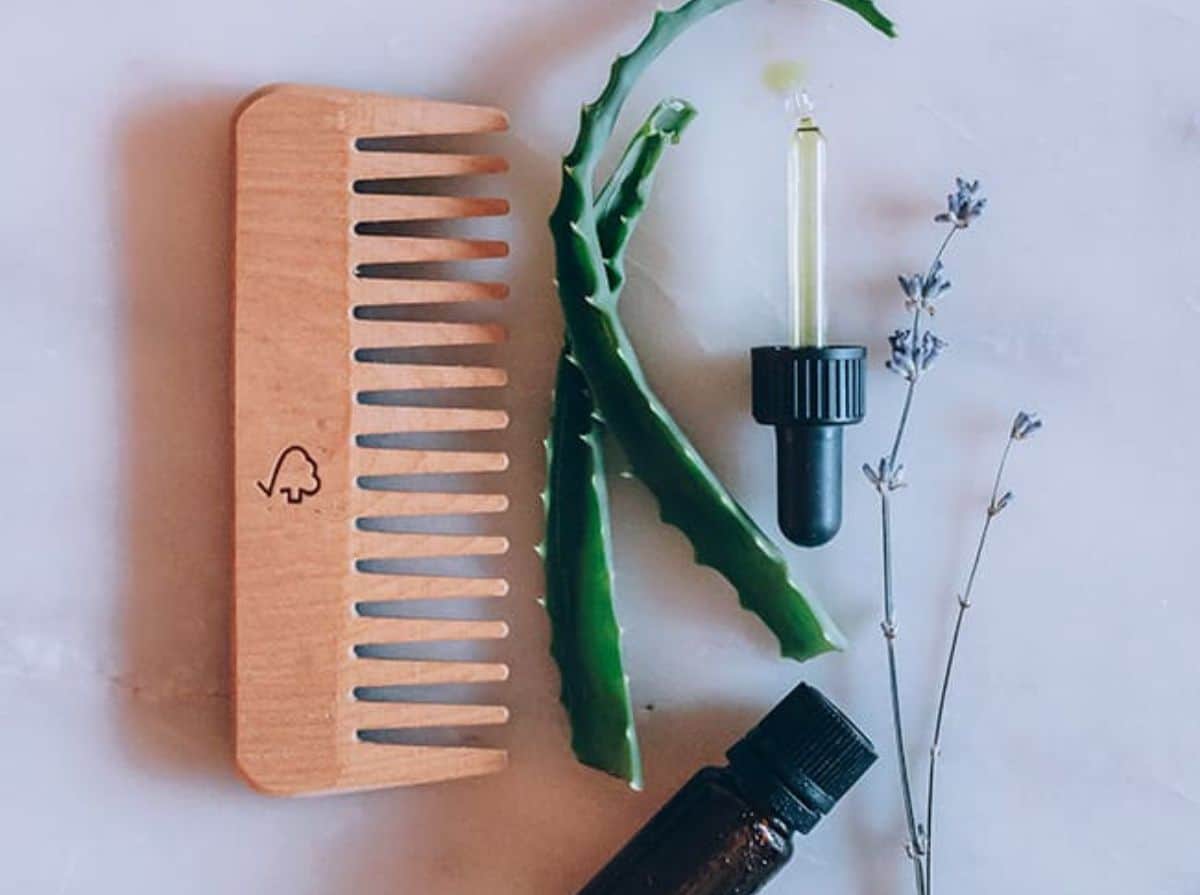
Did you know aloe is even good for your hair? Its polysaccharides actually restore moisture to hair to seal out humidity and add shine. Our hair gets especially frizzy in the hot, muggy heat, and this frizz spray has all the right ingredients to keep hair smooth and silky.
Use It In: Scalp Masks
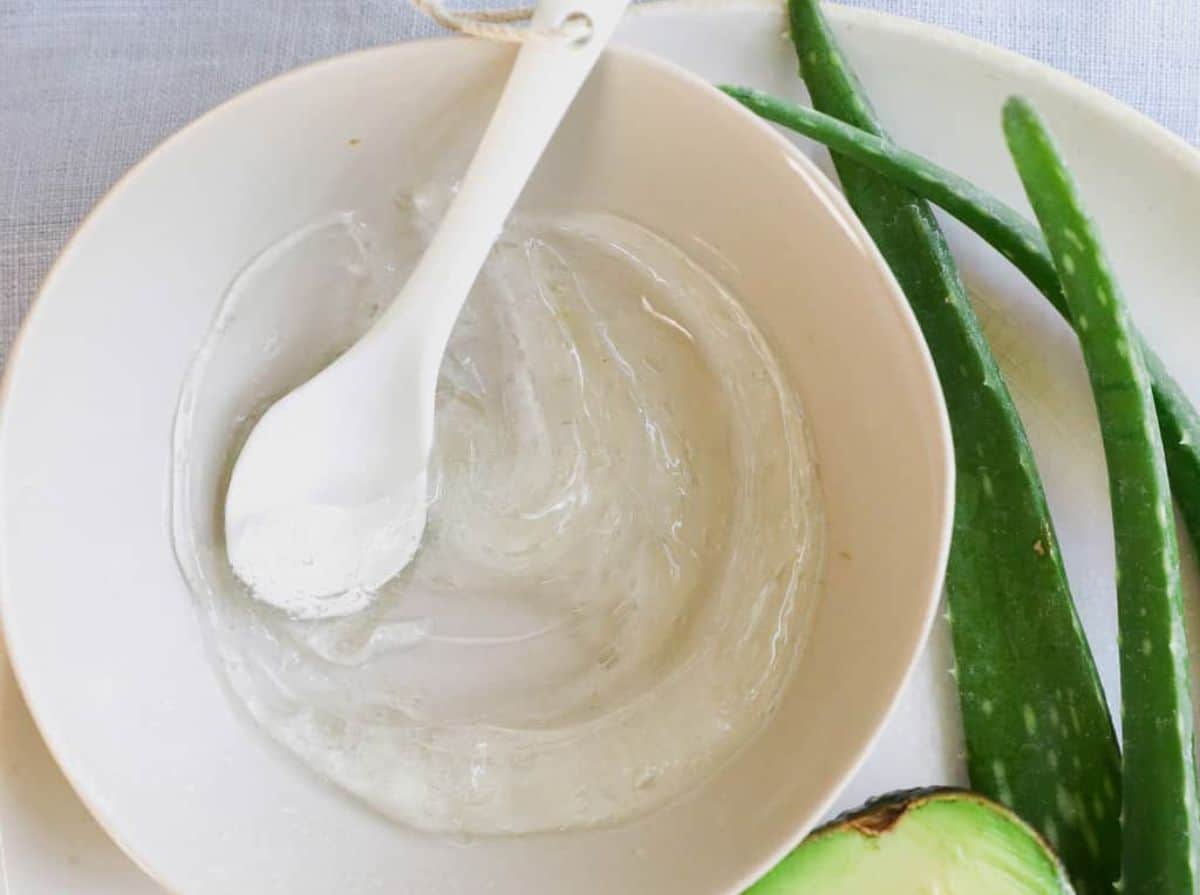
If you're suffering from a dry or itchy scalp or other hair woes, aloe's soothing properties are sure to help you. It's also a great mask to soothe irritation if you routinely dye your hair. Best of all, it only takes ½ cup of aloe vera gel and 1 tablespoon of coconut milk.
Aloe also makes a superb hair styling gel! And you can customize the hold for your specific hair type.
Top tip
Aloe contains awesome wound-healing properties, but it doesn't burn when you put it on your skin like some commercial products do. This makes it especially beneficial to use with children or anyone who has sensitive skin.
FAQ
To extract aloe vera gel, carefully cut a mature leaf from the plant. Slice open the leaf and scoop out the clear gel using a spoon. Avoid the yellow sap (latex) close to the skin, as it may cause skin irritation.
Yes, you can use store-bought aloe vera gel as long as it's pure and free from added chemicals or preservatives. Look for organic, 100% aloe vera gel without any added fragrances.
Since aloe vera gel is natural and lacks preservatives, it's best to make small batches and store them in airtight containers. Keep them refrigerated to extend their shelf life.
Yes, aloe vera can nourish and hydrate the hair and scalp, promoting healthier hair growth and reducing dandruff. You can use aloe vera gel in hair masks, shampoos, and conditioners.
References
Surjushe A, et al. Aloe vera: a short review. Indian J Dermatol. 2008.
Shahzad MN, et al. Effectiveness of Aloe vera gel compared with 1% silver sulphadiazine cream as burn wound dressing in second degree burns. J Pak Med Assoc. 2013.
Radha MH, et al. Evaluation of biological properties and clinical effectiveness of Aloe vera: a systematic review. J Tradit Complement Med. 2015.
Cho S, et al. Dietary aloe vera supplementation improves facial wrinkles and elasticity and it increases the type I procollagen gene expression in human skin in vivo. Ann Dermatol. 2009.
West DP, et al. Evaluation of aloe vera gel gloves in the treatment of dry skin associated with occupational exposure. Am J Infect Control. 2003.
Hekmatpou D, et al. The effect of aloe vera clinical trials on prevention and healing of skin wound: a systematic review. Iran J Med. Sci. 2019.
Hashemi SA, et al. The review on properties of aloe vera in healing of cutaneous wounds. Biomed Res Int. 2015.
Hajheydari Z, et al. Effect of Aloe vera topical gel combined with tretinoin in treatment of mild and moderate acne vulgaris: a randomized, double-blind, prospective trial. J Dermatolog Treat. 2014.
Klimek-Szczykutowicz M, et al. Citrus limon (lemon) phenomenon—a review of the chemistry, pharmacological properties, applications in the modern pharmaceutical, food, and cosmetics industries, and biotechnological studies. Plants (Basel). 2020.
Ahmad T, et al. Phytochemicals in Daucus carota and their health benefits—review article. Foods. 2019.

